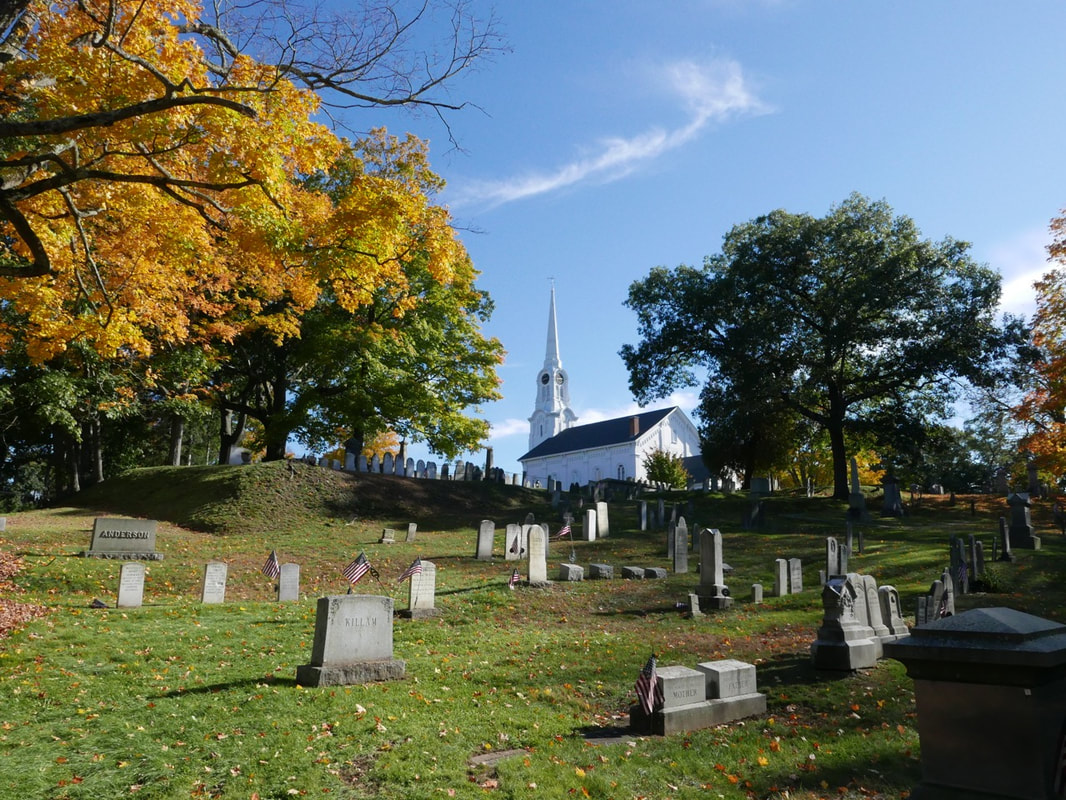Sherlock Bristol wrote that professing his abolitionism at Phillips Academy in 1834 cost him "the loss of friends, of reputation, of pecuniary helps, perhaps the necessity of giving up further study, possibly the ministry, too...." But it was all part of his education, an ongoing process, for he had come to believe in abolitionism only after having previously been convinced by the views of the American Colonization Society. Its cause, sending freed slaves to the newly founded colony of Liberia on Africa's west coast, was "immensely popular, North and South, and nowhere more so than in the churches and among the ministers," Bristol's autobiography states.
No doubt, the Poor family, who left Andover's South Church in 1847, because of their own abolitionist views, sacrificed friends and income, too, especially at a time when churches were at the heart of community life in New England. But they and those who left the church with them founded a new place of worship, Andover's Free Christian Church. I customarily park in front of that church when I go uptown to Andover's main center. I am unaware of knowing anyone who belongs to it, and when I looked it up on the Internet, I realized why. Today it is an evangelical church, affiliated with the Conservative Congregational Christian Conference. It is anti-abortion, doesn't recognize gay marriage, and does not condone homosexuality or pre-marital sexual relations. That doesn't describe me or my friends. So there we have the cultural divide at one of its most cavernous points, akin to the chasm created by the slavery question. But I myself haven't felt compelled to leave a church -- or even a dinner party -- because of my convictions. For one thing, I don't belong to a church. For another, few people I know have dinner parties any more, at least not the kind that used to bring strangers together. Maybe that's one of the problems. Recently a friend asked me: "Do you know any conservatives?" She was interested in hosting a dinner in the Make America Dinner Again mode. It's a program designed to bring together people of differing political opinions, and she needed conservatives to balance the embarrassment of liberals.
To be continued.
No doubt, the Poor family, who left Andover's South Church in 1847, because of their own abolitionist views, sacrificed friends and income, too, especially at a time when churches were at the heart of community life in New England. But they and those who left the church with them founded a new place of worship, Andover's Free Christian Church. I customarily park in front of that church when I go uptown to Andover's main center. I am unaware of knowing anyone who belongs to it, and when I looked it up on the Internet, I realized why. Today it is an evangelical church, affiliated with the Conservative Congregational Christian Conference. It is anti-abortion, doesn't recognize gay marriage, and does not condone homosexuality or pre-marital sexual relations. That doesn't describe me or my friends. So there we have the cultural divide at one of its most cavernous points, akin to the chasm created by the slavery question. But I myself haven't felt compelled to leave a church -- or even a dinner party -- because of my convictions. For one thing, I don't belong to a church. For another, few people I know have dinner parties any more, at least not the kind that used to bring strangers together. Maybe that's one of the problems. Recently a friend asked me: "Do you know any conservatives?" She was interested in hosting a dinner in the Make America Dinner Again mode. It's a program designed to bring together people of differing political opinions, and she needed conservatives to balance the embarrassment of liberals.
To be continued.

 RSS Feed
RSS Feed
